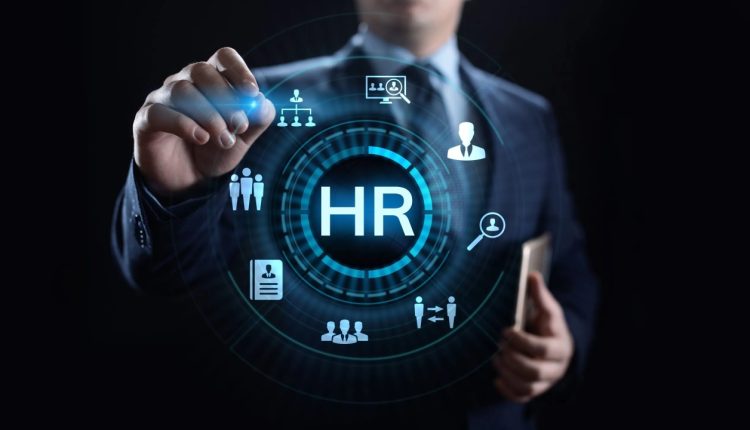Intelligence Automation for HR: The Next Step in Smarter Human Resources Automation
The way businesses manage their workforce has evolved rapidly in recent years, driven by the need for efficiency, accuracy, and smarter decision-making. Traditional HR systems, which once relied heavily on manual tasks and routine paperwork, are being replaced by intelligent automation technologies that blend artificial intelligence with data-driven processes. This new wave of automation is transforming HR departments into strategic powerhouses that focus on people, culture, and growth rather than just administration.
In today’s business environment, companies are increasingly exploring how supply chain automation human resources automation can work together to streamline workflows across departments. Just as supply chain automation enhances coordination and operational speed, applying similar automation principles to HR brings a new level of intelligence to employee management. The integration of AI and intelligent systems in HR operations helps organizations handle large volumes of data, reduce human error, and optimize workforce performance with precision.
Enhancing Recruitment with Intelligent Automation
Hiring the right talent has always been a complex and time-consuming process. With intelligence automation, HR departments can now manage recruitment more effectively through advanced algorithms and predictive analytics. These tools can analyze candidate profiles, match skills with job descriptions, and even forecast cultural fit. As a result, hiring managers can make more informed decisions faster while providing a better experience for candidates.
Moreover, automated interview scheduling, resume screening, and communication workflows save HR professionals valuable time. This allows them to focus on strategic areas such as talent development, diversity, and workforce planning. The combination of AI-powered insights and human judgment ensures better hiring outcomes and stronger teams.
Streamlining Employee Onboarding and Training
The onboarding process is a crucial stage in shaping an employee’s first impression and productivity. Intelligent automation simplifies onboarding by automating document collection, compliance checks, and orientation scheduling. Personalized onboarding journeys can be created for each new hire, ensuring a seamless transition into the company.
Similarly, automated learning platforms use data and AI to design personalized training programs. Employees can access real-time learning modules based on their role, performance, and career goals. This approach not only accelerates skill development but also keeps employees engaged, ultimately improving retention rates.
Smarter Performance Management and Employee Insights
Intelligence automation takes performance management beyond annual reviews. By continuously tracking metrics like goal achievement, productivity, and collaboration, AI systems provide real-time insights into employee performance. These tools can identify top performers, flag potential issues early, and recommend targeted interventions.
For instance, automated systems can suggest learning opportunities or wellness programs based on behavioral trends and engagement data. This proactive approach supports employee growth while maintaining a positive and productive work environment. The same technologies used in supply chain automation human resources automation ensure that data flows efficiently, connecting different aspects of the business to support strategic HR decision-making.
Improving Administrative Efficiency and Compliance
Administrative HR tasks such as payroll, attendance tracking, and benefits management often consume significant time and resources. Intelligence automation reduces this burden by handling repetitive processes with speed and accuracy. Automation ensures that payroll is processed on time, compliance reports are generated accurately, and employee data remains up to date.
Additionally, intelligent systems help maintain compliance with labor laws and company policies. Automated alerts and audit trails reduce the risk of errors or oversights, allowing HR teams to focus on building a positive organizational culture instead of worrying about paperwork.
Integrating Human and Machine Intelligenc
The success of intelligence automation in HR depends on balancing technology with human expertise. While AI handles data processing and routine tasks, HR professionals bring empathy, creativity, and emotional intelligence to the table. This combination creates a more dynamic and human-centered approach to managing people.
By using automation to eliminate inefficiencies, HR teams can focus on developing leadership programs, enhancing diversity and inclusion, and improving overall employee experience. Automation is not replacing HR professionals—it’s empowering them to make better decisions and deliver more value to their organizations.
The Future of HR Lies in Intelligent Automation
As businesses continue to evolve, intelligent automation is expected to play a bigger role in shaping how HR operates. The integration of data analytics, AI, and automation tools will enable HR departments to act with greater precision, speed, and foresight. Predictive insights will guide everything from workforce planning to employee engagement strategies, helping organizations stay agile in a competitive environment.
In conclusion, combining supply chain automation human resources automation represents the future of efficient and intelligent business operations. By adopting intelligence automation, HR teams can streamline processes, reduce errors, and enhance employee experiences while aligning people strategy with business goals. The result is a smarter, more adaptive workplace where technology and human insight work hand in hand to drive long-term success.


Comments are closed.